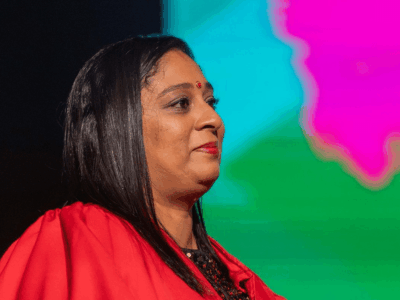Fourth industrial revolution to spark change in the higher education research sector
The seminar focussed on HE and scholarly publishing as sites of contestation and the need for boundary crossing as intersecting threads in the quest at MANCOSA to advance what Dr Israel referred to as [NEW]search.

Research geared towards the fourth industrial revolution in the higher educational sector has become the new imperative, whether in enhancing online modes of delivery, integrating emerging technologies into curricula, transforming business practice or effecting social change.
When Higher Education and Training Minister Naledi Pandor in May 2018, made reference to universities investing in
“research areas that explore boundaries beyond our current understanding of a range of processes and technologies”,
she sparked discussion around the need for research and skills development from Higher Education. This provided a point of departure for discussion around scholarly publishing for the modern academic and projected a series of tough questions for academics at the Management College of Southern Africa (MANCOSA): “What did she mean? Why should higher educational institutions explore these boundaries? Who is the modern academic/researcher and in what context would he/she thrive?”
At an introductory seminar entitled “Exploring new frontiers in research and scholarly publishing for the modern academic”, hosted on the 03 July 2018 at the MANCOSA Graduate School of Business, Dr Connie Israel from MANCOSA’s Research Academy provided a platform for self-reflective examination of responses to these key questions.
The seminar focussed on HE and scholarly publishing as sites of contestation and the need for boundary crossing as intersecting threads in the quest at MANCOSA to advance what Dr Israel referred to as [NEW]search. Planned initiatives of the Research Academy at MANCOSA to develop scholarship from a visible, vibrant and robust platform, were introduced, including raising the profile of its Journal of Management and Administration (JMA); offering mentorship/support to emerging researchers through a seminar series on writing for scholarly publication; journal navigation and the dangers of predatory journals; establishing a digital newsletter, and exploiting alternative options and formats for publishing, to widen research readership. Through its Graduate School of Business, MANCOSA is well-positioned to respond to the evolving education and training needs of developing economies, and to address the challenges of the 21 st century. Dr Israel urged a commitment to excellence in all spheres, and a multi-pronged approach that addresses the complex factors impacting success in HE, including creating diverse virtual, physical and psychological spaces for both faculty and learners. MANCOSA needs to continue to cross boundaries rather than build walls, through collaborative research.
The seminar concluded with lively discussion and shared insights from established and new researchers, with Dr Israel encouraging active participation from faculty to raise the bar in the quest to enhance research output at MANCOSA. The gauntlet thrown down by the Minister is being actively acknowledged.





